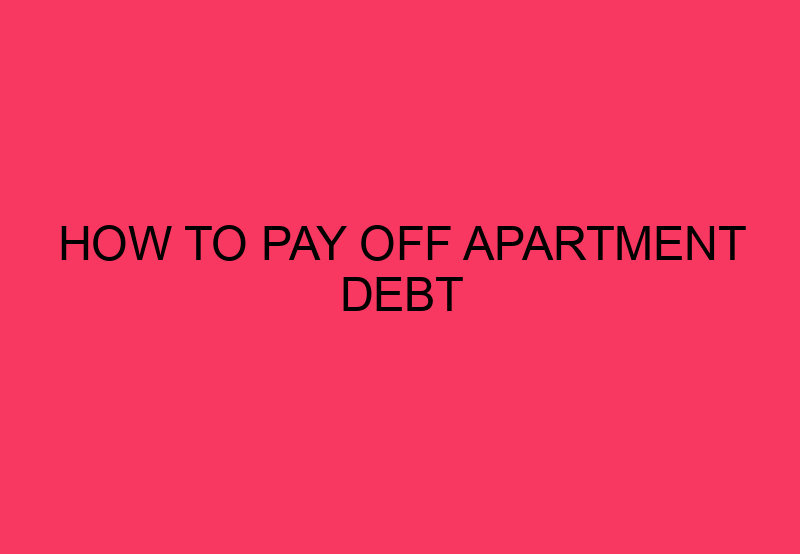Living in an apartment can be overwhelming when you’re struggling to keep up with rent payments and other bills. If you’ve found yourself accumulating debt, you’re not alone. In this article, we’ll explore some practical tips to help you pay off apartment debt and regain your financial footing.
1. Create a Budget
Before you can start paying off your apartment debt, you need to know exactly how much you owe and to whom. List all your debts and their respective interest rates. Determine how much you can afford to pay each month and prioritize the debts with the highest interest rates.
You can use budgeting apps like Mint or PocketGuard to track your spending and identify areas where you can cut back. For example, you can save money on groceries by buying generic brands or cooking meals at home instead of eating out. Once you have a budget in place, stick to it and avoid unnecessary expenses.
2. Negotiate with Your Landlord
If you’re struggling to pay rent, talk to your landlord before things get out of hand. Explain your situation and ask if they can offer any leniency or a payment plan. They may be willing to waive late fees or accept partial payments until you catch up.
You can also look into government assistance programs such as Section 8 or the Low-Income Home Energy Assistance Program (LIHEAP). These programs provide financial assistance to eligible individuals and families to help cover their housing and utility costs.
3. Increase Your Income
Finding ways to increase your income can help you pay off your apartment debt faster. You can look for a higher-paying job, work overtime, or pick up a side hustle. Selling items you no longer need or renting out a spare room can also generate extra cash.
Consider ways to save money on your monthly bills, such as negotiating with your cable or internet provider for a lower rate. If you have a car, you can also save money on gas by carpooling or using public transportation.
4. Use the Snowball Method
The snowball method is a debt-reduction strategy that involves paying off your smallest debts first while making minimum payments on your other debts. Once you’ve paid off your smallest debt, roll that payment into the next-smallest debt until you’ve paid off all your debts.
This method can help you stay motivated and see progress as you pay off each debt. It also frees up more money each month as you eliminate your smaller debts, allowing you to put more towards your larger debts.
5. Consider Debt Consolidation
Debt consolidation involves combining multiple debts into one loan with a lower interest rate. This can make it easier to manage your debts and save you money on interest charges.
You can consolidate your debts through a personal loan, balance transfer credit card, or home equity loan. Make sure to do your research and compare your options to find the best option for your financial situation.
Conclusion
Paying off apartment debt may seem daunting, but it’s important to take action before your debt spirals out of control. By creating a budget, negotiating with your landlord, increasing your income, using the snowball method, and considering debt consolidation, you can take steps towards financial freedom and start achieving your goals. Remember to stay motivated and focused on your long-term financial health.
